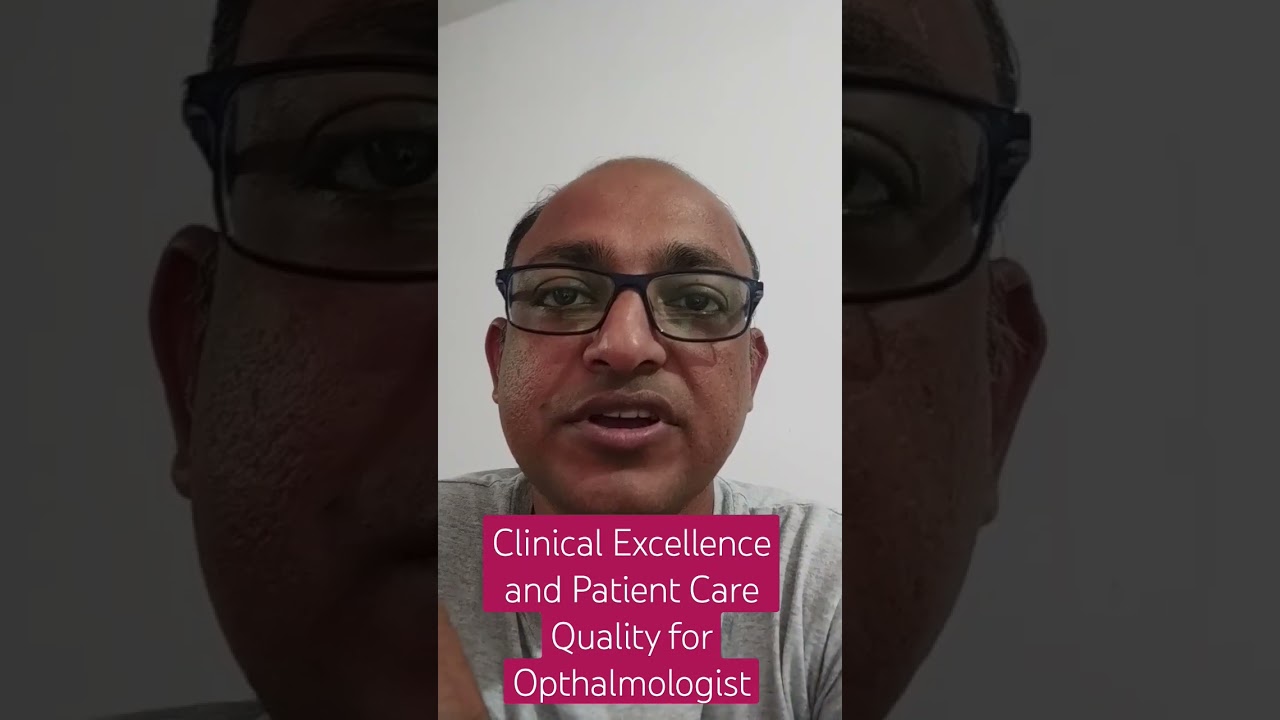Clinical excellence and patient care quality are fundamental principles in the practice of ophthalmology. Ophthalmologists must strive to provide the highest level of care to their patients, ensuring both clinical proficiency and a positive patient experience. Here are key aspects to consider for achieving clinical excellence and enhancing patient care quality as an ophthalmologist:
1. Continuous Education: Stay up-to-date with the latest advancements in ophthalmology through ongoing medical education, attending conferences, and engaging in research to provide patients with the most current treatment options.
2. Evidence-Based Practice: Base clinical decisions on evidence-based guidelines and scientific research to ensure the most effective and safe treatments.
3. Clinical Skills: Maintain and enhance surgical and diagnostic skills to perform procedures accurately and minimize complications.
4. Patient-Centered Care: Prioritize patients’ individual needs and preferences by involving them in treatment decisions, providing clear explanations, and addressing their concerns.
5. Effective Communication: Develop strong communication skills to convey complex medical information in an understandable way, fostering trust and confidence in patients.
6. Thorough Examinations: Conduct comprehensive eye examinations, including detailed patient histories and appropriate diagnostic tests, to accurately diagnose and treat eye conditions.
7. Personalized Treatment Plans: Tailor treatment plans to each patient’s unique circumstances, considering factors like age, lifestyle, and medical history.
8. Timely Care: Minimize waiting times for appointments, surgeries, and follow-up visits to ensure patients receive timely care.
9. Informed Consent: Obtain informed consent before any surgical or invasive procedures, ensuring that patients fully understand the risks, benefits, and alternatives.
10. Pain Management: Implement effective pain management strategies for patients undergoing surgical procedures or experiencing eye discomfort.
11. Safety Protocols: Adhere to strict safety protocols, including infection control measures, to protect patients and staff from potential harm.
12. Follow-Up Care: Provide comprehensive post-operative and follow-up care to monitor patient progress and address any complications or concerns promptly.
13. Quality Assurance: Establish quality assurance programs and regularly review clinical outcomes to identify areas for improvement.
14. Ethical Practice: Uphold the highest ethical standards in patient care, research, and professional relationships.
15. Patient Education: Offer educational resources to help patients understand their eye conditions, treatment options, and the importance of compliance with prescribed treatments.
16. Cultural Competence: Be sensitive to cultural differences and tailor care to accommodate diverse patient populations.
17. Patient Feedback: Encourage and welcome patient feedback to continuously improve the quality of care provided.
18. Coordination of Care: Collaborate with other healthcare professionals and specialists when necessary to ensure comprehensive patient care, especially in cases of comorbidities.
By prioritizing clinical excellence and patient care quality, ophthalmologists can not only enhance patient outcomes but also build strong reputations and patient loyalty within their communities.
source



